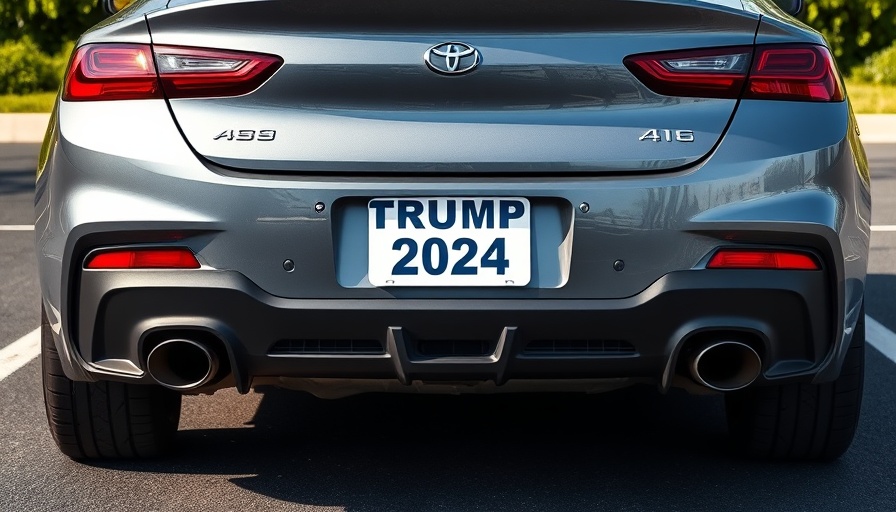
Trump's Return: A Potential Resurgence for the Auto Industry
As Trump prepares to return to the helm of American politics, the auto industry braces itself for possible shifts in trade policies that could redefine its landscape. Historically, a Republican administration has been perceived as beneficial for auto manufacturers, especially with a stronghold in Congress. However, Trump's unconventional approach raises questions about the stability and predictability of his policies.
The Tariff Dilemma: Navigating New Financial Waters
One of Trump's most controversial campaign promises was the implementation of substantial tariffs, particularly a 25 percent tax on vehicle imports from Mexico and Canada. Such tariffs could significantly affect the operational costs for automakers heavily reliant on cross-border manufacturing. Industry analysts, like Erin Keating from Cox Automotive, highlight the ripple effect of these tariffs: automakers, dealers, and customers may all bear the brunt. If manufacturers are forced to absorb increased costs, it could squeeze their profit margins, leading to either reduced investment in new technologies or higher vehicle prices passed on to consumers.
The Impact on Supply Chains: Understanding the Bigger Picture
The interconnectedness of the North American auto supply chain cannot be overstated. The top manufacturers utilizing Mexican plants shipped 1.4 million vehicles to the U.S. within six months in 2024. A sudden shift in tariffs disrupts not only production schedules but also the established partnerships between manufacturers and suppliers in both Canada and Mexico. Critics argue that imposing tariffs could jeopardize decades of collaboration that have made the North American auto market competitive.
Electric Vehicles (EVs) and Emission Regulations: A Transformative Opportunity
Under the previous administration, strides were made towards stricter emissions regulations and the promotion of electric vehicles. Trump's administration may opt to loosen these regulations, potentially reigniting a focus on traditional manufacturing methods. However, this could clash with the growing consumer demand for sustainable alternatives. As dealerships, understanding this balance will be crucial in aligning inventory with consumer preferences.
Looking Ahead: Preparing for a New Auto Landscape
The impending changes herald a crucial time for dealership principals and fixed operations directors. Uncertainty in trade policies, tariffs, and regulations means they must stay nimble and informed. It is essential to focus on the evolving marketplace and consumer sentiment towards vehicles, especially in relation to EVs.
By fostering strong relationships with manufacturers, dealerships can better prepare for shifts in supply chains, tariffs, and regulatory environments, ultimately positioning themselves to adapt effectively and thrive despite new challenges.
 Add Row
Add Row  Add
Add 




Write A Comment